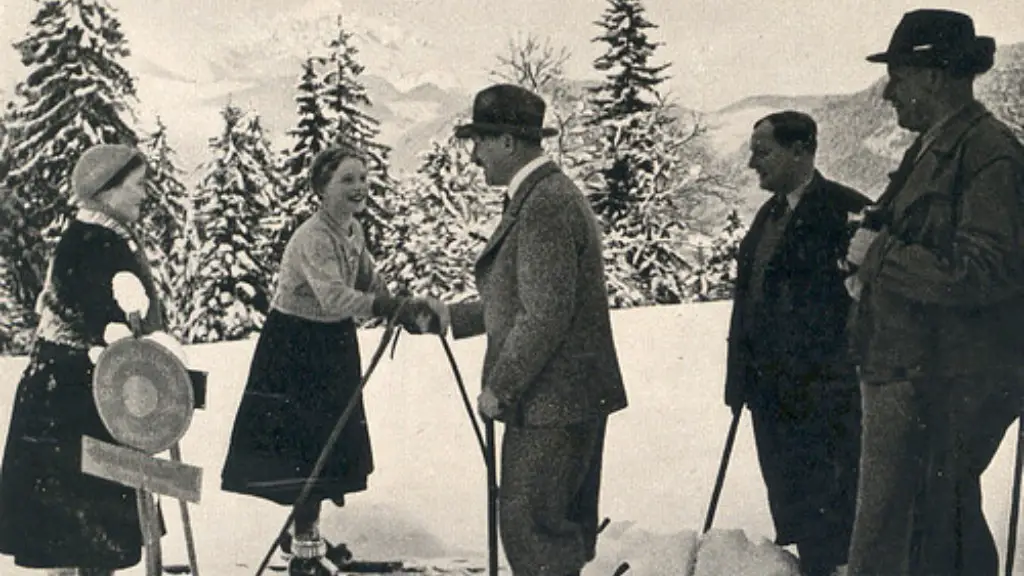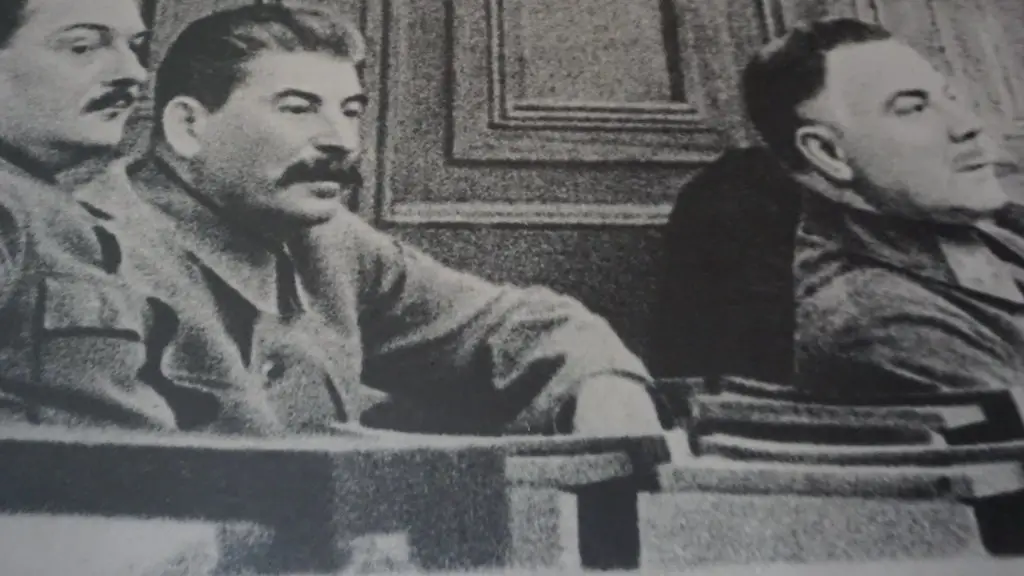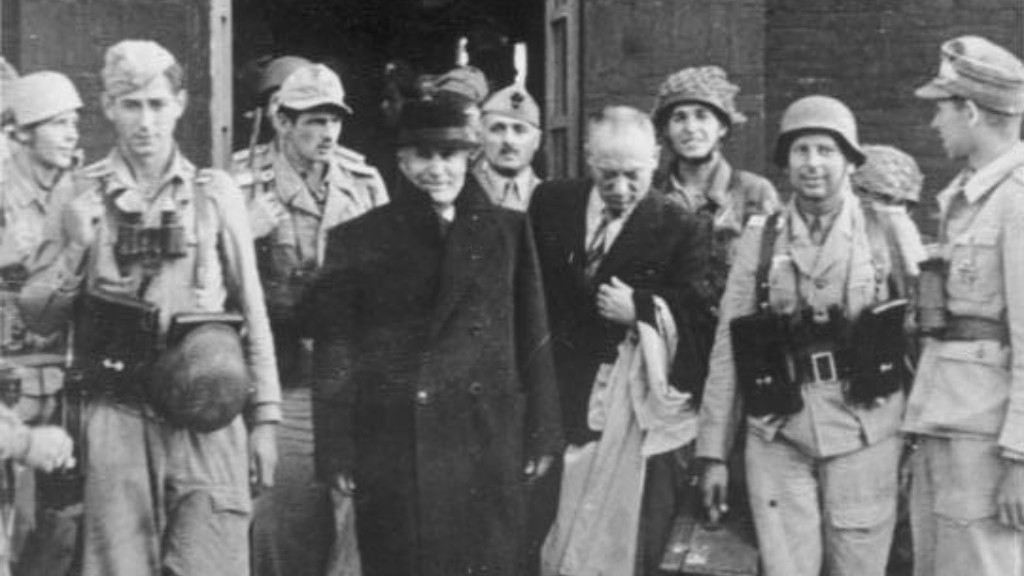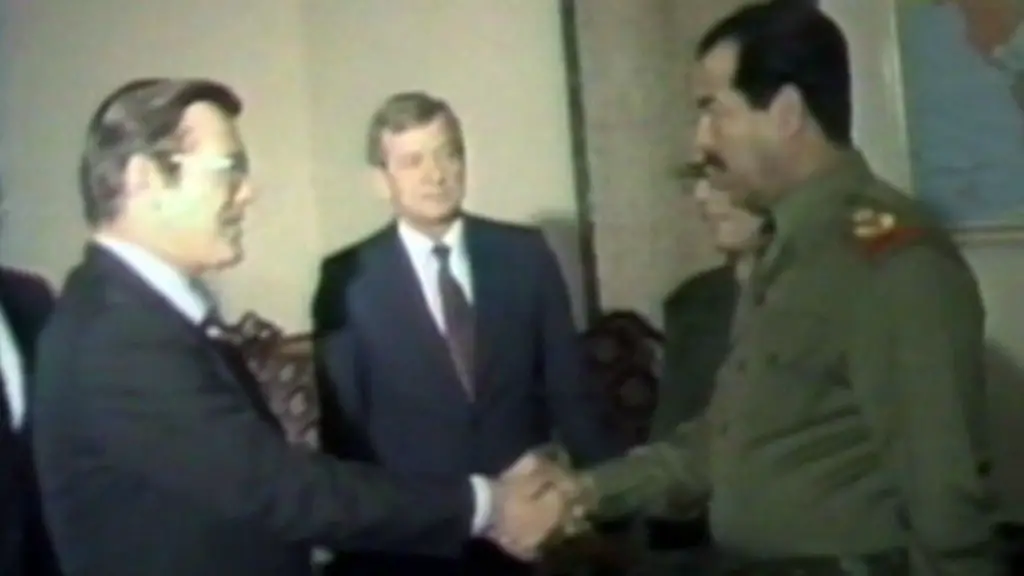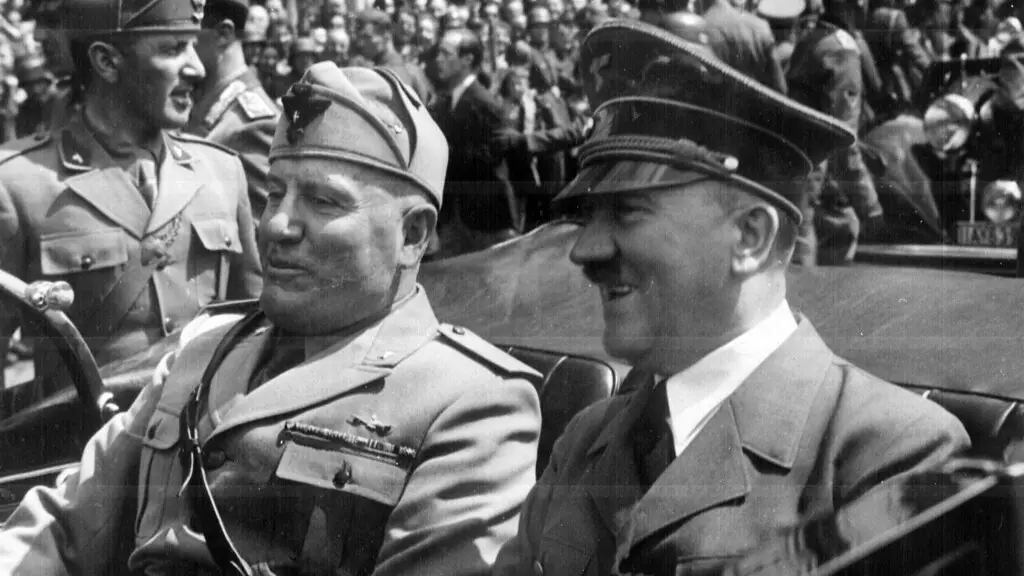Adolf Hitler is a name that almost always conjures up images of death, destruction and oppression. But before he gained infamy as one of the 20th century’s greatest villains, he was essentially another politician who rose to the highest office in the land and began to establish a certain level of control over Germany. Many historians of the time considered his rise to power to be unprecedented and some even thought that it was a sign of the apocalypse. But what exactly did Hitler control in Nazi Germany?
The first element of Hitler’s control in Germany was his ability to manipulate the press. The Nazi party purchased the majority of the major newspapers and Hitler exerted control over them by forbidding any critical reporting or coverage of the opposition. This enabled him to control what information the people of Germany were exposed to and to create a false sense of trust. By forcing the press to only report on party activities and successes, Hitler was able to convince his constituents that he was the only leader they could trust.
Once Hitler gained control of the press, he was able to use it to strengthen his position in other areas. One of the most critical areas he was able to control was the education system. He and his party turned the entire educational system into a means for indoctrinating the German people with the Nazi ideology. Nazi propaganda infiltrated classrooms and provided teachers with a set of instructions for their teaching – Nazi propaganda was to be favoured over anything else. This policy had devastating consequences, as it effectively brainwashed an entire population and gave Hitler total control over the German people’s beliefs.
The Nazi party also used the educational system to further their own agenda. They created a new version of the curriculum, which excluded Jewish history and literature and focused instead on German nationalism and racial superiority. This new curriculum was essential to Hitler’s control, as it focused on creating a culture of adherence to Nazi ideals. This was an effective way for Hitler to expand his control over the German people, as it enabled him to condition them to support him and his agenda.
Another important way in which Hitler was able to control Germany was through the implementation of oppressive laws. The Nazi party was able to pass legislation that not only gave them broad control over the people of Germany, but also served to isolate certain groups. Jews and other minorities were stripped of their rights and forced to live in segregated areas. This enabled Hitler to keep his control over certain groups, as well as to keep them from influencing the German people and eroding his power.
Hitler was also able to control Germany through fear and intimidation. His regime used fear tactics to maintain social order, such as the Gestapo, secret police that patrolled the streets. Moreover, his party used forceful rhetoric to discourage any opposition and create an atmosphere of compliance. This enabled Hitler to control the public discourse and quell any potential unrest.
Finally, Hitler was able to control Germany through a combination of economic and military policies. He abolished the country’s democracy and replaced it with an authoritarian regime, concentrating power in his hands. Moreover, he enacted policies of rearmament and expansion, allowing him to rely on both economic and military force to maintain control.
Sociopolitical Effects of Hitler’s Control
Hitler’s control of Germany had far-reaching consequences, both for the German people and for the rest of the world. By forcing citizens to abide by his policies and submit to his rule, he effectively undermined the concepts of democracy and individual liberty. Moreover, his policies had the effect of creating an atmosphere of fear, as citizens were subjected to arbitrary arrest and execution if they were found to be in opposition to his rule.
The Nazi regime also had grave consequences for the Jewish population of Germany. Through his oppressive laws, Hitler was able to isolate them and strip them of their rights, eventually leading to the extermination of millions in concentration camps. This demonstrated the extent to which Hitler was able to control the population and demonstrated the dangerous consequences of giving such power to a single person.
On a global level, Hitler’s control of Germany was the catalyst for World War II. By seizing control of the country and its resources, he was able to launch an aggressive campaign of expansion and conquest that eventually brought Europe to the brink of destruction.
Impact of Hitler’s Control on History
Hitler’s control of Germany had a lasting impact on world history. His authoritarian regime provided a stark contrast to the values of democracy, individual liberty and human rights that were becoming increasingly important in the 20th century. Moreover, his regime established a powerful precedent that was used by dictators throughout the world to justify their own oppressive practices.
Hitler’s control of Germany also paved the way for a new type of warfare. His use of strategic bombing and propaganda to subjugate his citizens and his ruthless campaigns of expansion and conquest demonstrated the devastating effects of absolute power. These tactics have been employed by leaders around the world and have had a lasting effect on the ways in which nations wage war.
Finally, Hitler’s control of Germany left a dark stain on the history of the 20th century. Not only did it lead to the death and destruction of millions of innocent people, but it was also a potent reminder of the dangers of giving too much power to a single individual. This was a lesson that the world was slow to learn, as it has been repeated numerous times throughout history.
Evidence of Hitler’s Control
One of the most visible pieces of evidence of Hitler’s control over Germany is his use of propaganda. The Nazi regime relied heavily on propaganda to manipulate public opinion and control the discourse. From public rallies to the works of Joseph Goebbels, Hitler and the Nazi party were able to utilize mass media to ensure that their message was heard by the German people and that anyone who opposed them was quickly silenced.
The evidence of Hitler’s control can also be seen in the massive infrastructure projects he undertook. He initiated major projects such as the construction of the Reich Chancellery and the autobahn, which were intended to demonstrate the power and strength of the Nazi regime. These projects were also used to demonstrate that Hitler had the ability to mobilise the German population to achieve his goals, which established his control over the country.
The Nazi regime also used brutal tactics to maintain control. From arbitrary arrests to the use of the Gestapo, Hitler and the Nazi party did not hesitate to use violence to suppress any opposition. This was an effective tactic for ensuring that the population was too scared to stand up to them and demonstrated their total control over the people of Germany.
Finally, the evidence of Hitler’s control can be seen in his success in the economic and military sectors. He was able to revitalize the German economy, which enabled him to wage war and provided him with the resources he needed in order to maintain his grip on power. This demonstrated the power of his regime, as it enabled him to accomplish feats that seemed impossible at the time.
Lack of Hindsight in German People towards Hitler’s Control
The lack of hindsight in the German people towards Hitler’s control of the country was one of the most surprising aspects of his rule. Despite the fact that he was oppressing his citizens and destroying the democratic system, he was still able to maintain a level of popularity and even admiration amongst them. This was due to the fact that he was able to utilise propaganda and fear tactics to manipulate public opinion and create a false sense of security and stability.
This lack of hindsight was also due to the fact that the German people were subjected to a continuous stream of propaganda and were isolated from any news or information about his regime’s true nature. This enabled Hitler to keep them in the dark and control their thoughts and opinions. By suppressing any critical reporting and censoring any dissenting opinions, Hitler was able to convince the German people that his rule was beneficial for the country.
Another factor in the lack of hindsight from the German people towards Hitler’s control of the country was that they were surrounded by an atmosphere of fear and intimidation. Any dissenting voices or opposition to the regime was swiftly silenced, either through imprisonment or execution. This created an environment in which people were too scared to speak out or even think critically about the regime and was an effective way for Hitler to maintain control.
Finally, Hitler was also able to win the support of the people through his policies of rearmament and expansion. By creating jobs and bringing economic prosperity to the country, Hitler was able to convince the people of Germany that his rule was beneficial for them and they thus believed that they had no choice but to support him. This further enabled him to maintain his grip on power and control the population.
French View of Hitler’s Control
The French view of Hitler’s control over Germany was one of horror and dismay. From their perspective, the situation seemed to be spiralling out of control and Hitler’s actions appeared to be leading the country down a path of destruction. The French were deeply troubled by the way Hitler was able to use propaganda and oppressive tactics to maintain control, as they feared that it could easily lead to a world war.
The French were further concerned by the way Hitler was able to manipulate and control the population of Germany. They feared that his tactics would become widespread and that dictators around the world would emulate his oppressive methods. They were particularly troubled by the fact that the German people seemed to be enthralled by Hitler’s rhetoric and appeared to be willing to follow him blindly.
The French were also deeply disturbed by the way Hitler was able to use fear and intimidation to maintain control. They viewed his tactics as an affront to all the values of democracy and individual liberty, which they believed were essential for a healthy society. The French were particularly fearful of the fact that the Nazi regime was able to indoctrinate an entire population into submission and control them through terror.
Lastly, the French viewed Hitler’s control of Germany as a threat to world peace and stability. They feared that the Nazi regime was bent on global domination and expansion, and that this could lead to a devastating conflict that would destabilize the entire world. This fear was a driving factor behind their decision to join the Allies and fight against Hitler’s regime.
